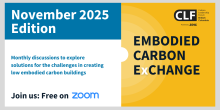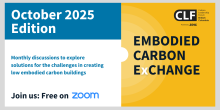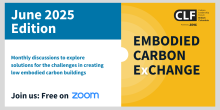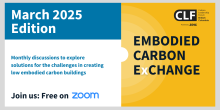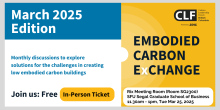CLF BC Embodied Carbon Exchange - February 2026 Edition
Join us for our Embodied Carbon Exchange and connect with a diverse range of building industry stakeholders over informal and open-ended discussions about real-world, on-the-ground problems related to reducing embodied carbon in building construction projects.
You will have the opportunity to ask questions, share your experiences, and learn from one another in a collaborative and supportive environment. People with all levels of experience and understanding of embodied carbon are encouraged to join.



